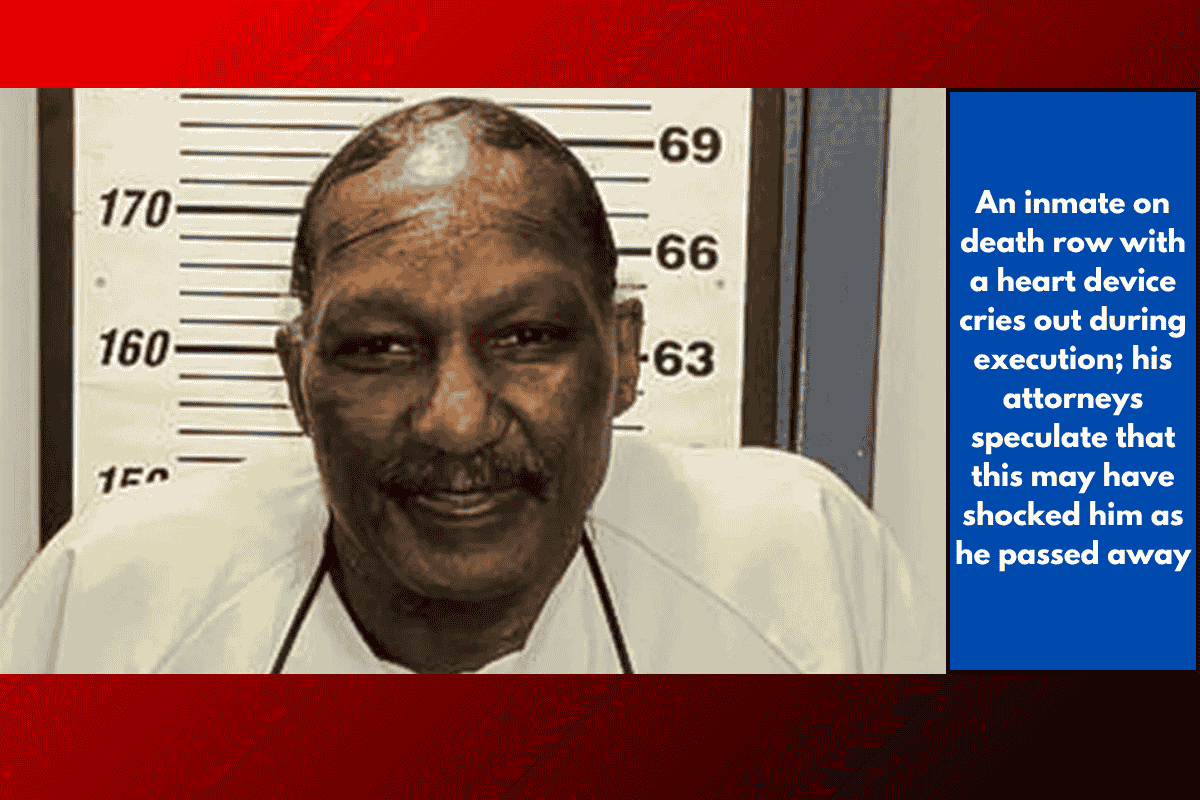Nashville, Tenn. – Byron Black, a 69-year-old Tennessee inmate, was executed by lethal injection Tuesday morning at the Riverbend Maximum Security Institution in Nashville, despite warnings from doctors and advocates about the potential risks posed by his implantable cardioverter defibrillator (ICD), a medical device designed to deliver shocks to the heart when it detects irregular rhythms.
Execution Details
Black was convicted for the 1988 murders of his girlfriend Angela Clay and her two young daughters, ages 6 and 9. He was pronounced dead at 10:43 a.m. local time, according to the Associated Press. Black had no last words, but multiple witnesses reported that he groaned, gasped, and appeared to be in visible distress throughout the execution. At one point, he reportedly cried out, “It’s hurting so bad.”
Concerns Over Heart Device
Leading up to the execution, Black’s legal team raised concerns about the impact of his ICD, arguing that it could interfere with the lethal injection drugs and potentially trigger repeated painful shocks as Black died. His attorneys fought to have the device deactivated, but this request was denied by Tennessee’s Supreme Court, which ruled that the judge did not have the authority to intervene in the matter. The Nashville General Hospital, where Black’s device was implanted, also declined to participate in deactivating the device, citing ethical concerns.
Legal and Medical Battles
Black’s attorneys, including Kelley Henry, who represented him, stated that their client had been “tortured” during the execution. His legal team had also sought clemency, citing Black’s intellectual disability, heart failure, kidney failure, and progressive dementia, as well as his wheelchair-bound state. Black had been on death row for over three decades.
Final Appeals and Aftermath
Both Black’s final appeals for clemency were denied by the U.S. Supreme Court and Tennessee Gov. Bill Lee. Following the execution, Black’s attorneys announced plans to request a full autopsy and access to data from the defibrillator to determine whether it had discharged during the execution.
This execution marks the second in Tennessee this year, after the state resumed executions following a pause due to issues with its lethal injection protocols. Legal experts and advocacy groups have pointed out that Black’s case may represent the first documented instance in the U.S. of an execution proceeding with an active implantable defibrillator still in place.
The execution of Byron Black has drawn significant attention and raised ethical questions, particularly regarding the impact of his ICD on the lethal injection process. His legal team is now pursuing further investigation into the circumstances surrounding his death, including the possibility of an autopsy and review of the defibrillator’s data.















He’s on death row cause he killed a mother and her 6 year and 9 year old daughters, I’m wondering did they scream out at their last breath ?
I bet it didn’t hurt half as much as what he did
Thank you for your feedback!